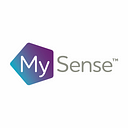The Benefits of Diversity
Diversity enhances an organisation’s resilience, its ability to understand the nature of its challenges and its responses to them
The universe looks different if you look at it in different ways. Looking at visible light you see one thing, looking at x-rays you see another. If you only saw mostly red or mostly blue you would only have a limited understanding of the world, but expanding your ability to see more wavelengths means you gain better insight into the complexity of the world. To fully understand it, you need to look at it in as many different ways as you can. This is one of the benefits diversity brings.
Take language as an illustration for example. It consists of words, phrases and grammar that help us construct and describe the world we live in — relationships, emotions, objects, abstract concepts and so on. Each language constructs the world in a slightly different way. In the visible light analogy, different languages emphasise certain wavelengths more or even perceive some wavelengths that other languages do not.
There is enough overlap between people’s experience in the developed world that people with different first languages can share ideas and collaborate on objectives, but there is enough difference that bringing together people with different first languages offers the advantage of looking at the world through many different lenses at the same time. But why is that important? Or, more to the point, why is not having that dangerous?
Groups of people can be more or less diverse. One of the problems with a homogenous group, that is one with little diversity, is that the people in it will tend to share the same outlook because, in the case in point, they share the same first language. Because of that, they also share the same conceptual ‘blind spots’ — there are some frequencies of light no one in the group can see. That means they are exposed to a risk of missing something important when they collaborate.
With thanks to my colleague Swanny for providing it, here’s an example of just one word from French for which there isn’t an equivalent word in English — “Empêchement — comes from empêcher (preventing from). You say to someone, sorry, I was not able to come because I had an “empêchement”. It means I had something that prevented me from coming. But we don’t know what it is. It is a word that encapsulates all the possible excuses that exist.”
With no equivalent word, English speakers are left with some uncertainty if mentioning the cause of the obstruction is necessary. If they don’t, it may look elusive or suspicious; if they do, it may look like they are not managing personal boundaries well.
The point is that there are many and varied ways diversity of first language alone can enhance an organisation’s resilience and its ability to understand the nature of its challenges and respond quickly and successfully to them.
At MySense, we understand that the 17 different first languages spoken by our colleagues bring us strength and understanding that is not available in any other way.
Written by James Brown, Partnerships Director at MySense
Originally published at https://www.mysense.ai on August 4, 2021.
